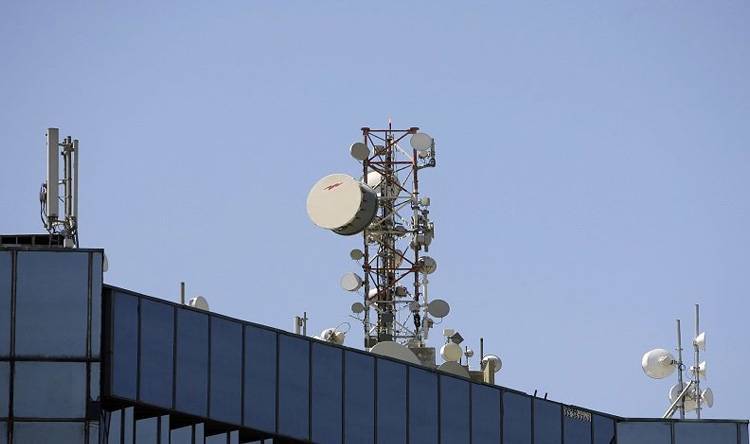In the last session held by the Parliamentary Communications Committee yesterday, before the holiday break for Christmas and New Year, five complicated files were on the meeting agenda, attended by Minister of Communications Johnny Qarm and the committee's president and members.
- Over the Top (OTT) services, freely available on the internet and currently offered by several companies without the need for any license. However, the Ministry of Communications proposed to the Cabinet that Ogero should provide the service in partnership with licensed content providers, even though experts assert that the service does not actually require its infrastructure.
- The e-wallet, or E-WALLET, and the attempts by telecom companies Touch and Alfa to outsource the service to private companies, contrary to the Public Procurement Authority's opinion, which maintained that Touch and Alfa should execute the service themselves.
- The internet service via STARLINK satellite, which the Cabinet removed from the emergency plan proposed by the Minister of Communications. The minister's request was for temporary licensing of the company to operate 150 devices donated by the American P Foundation. However, the caretaker government hesitated to accept this donation without refusing to consider introducing the Starlink service in Lebanon, assigning the Minister of Communications to prepare necessary studies to regulate the company's commercial framework in Lebanon according to protocols, in coordination with relevant security and military agencies.
- Mail outsourcing, a file that has been subjected to long debates throughout 2023 and continues with the Court of Accounts issuing two decisions refusing the interim commitment awarded by the ministry to the coalition of Lebanese company Merit Invest and Colis Privé France. Minister Qarm transferred the discussion of the Court's decision to the Cabinet, which issued its decision on November 16 to re-tender, extending the contract with "Liban Post" until a new contract with an operator is signed. The ministry will work in the meantime to adjust postal service pricing schedules until the next tender and the sector is handed over to the winning contractor.
- The last topic addressed in the session was the issue of internet networks established illegally and the ministry's actions in response.
No Satisfactory Answers
Despite the significance of these files, it does not appear that the Communications Committee reached satisfactory answers on any of them, according to Committee Rapporteur Yassine Yassine, and thus the discussions were postponed until next year, where some files, including OTT service and the e-wallet file, are expected to become subjects of parliamentary questioning.
According to information, Minister Qarm requested to invite representatives from the companies providing these services to the Parliamentary Communications Committee session to provide additional answers through their experts, as he derives technical and technological information from them. It is noted that Qarm also showed a tendency to disregard securing some of these services unless implemented via a partner from the private sector. This matter was extensively discussed between Committee Rapporteur Yassine Yassine and the Minister of Communications, after Yassine showed him models of service provision in other countries, including Arab countries like Jordan and Egypt, where the telecommunications operating companies have not renounced their privileges in providing these services and retaining their profits.
As for the Minister of Communications' responses regarding the internet service through the Starlink network, they were also deemed insufficient by committee members, according to Yassine. While extensive discussions did not occur regarding the file of networks established illegally, the topic of mail outsourcing, and the government's assignment to the Minister of Communications to launch a new tender prompted a broad discussion among all committee members, especially when Minister Qarm mentioned that the process of re-launching the tender could take a long time, potentially up to two years, without clarifying to the committee the steps he initiated to improve the state's position in the extended contract with Liban Post.
Meanwhile, Minister Qarm indicated that the available time was not sufficient to provide comprehensive explanations about all the files discussed, especially since he was not informed of the session's convening long ahead of its occurrence, as he mentioned to "Nidaa Al-Watan."
Clarifications from Qarm
In response to questions posed by "Nidaa Al-Watan" regarding the files discussed in the session, Qarm presented the following summary:
- Regarding the OTT file, he mentioned that the ministry has taken the opinion of the Advisory Authority for approval, and it also presented the matter to the Public Procurement Authority. It is currently negotiating with a specific company on a contract that will not be exclusive; once the contract is finalized, it will be presented to the Court of Accounts. He considered that establishing this service ensures legitimate competition between the state and the private sector, noting that it would not cost the state any expenses but would generate revenues since the platform would be a donation that any content provider could use, in exchange for a profit percentage collected by the state. Thus, the more content owners there are, the better for us.
- Concerning the e-wallet file, Qarm stated that he has halted discussions on this project for now, and no contracting will occur with any company. However, as he explained, he informed the committee that he was surprised by the Public Procurement Authority's response, questioning, "What provision of the Public Procurement Law did it rely on to recommend implementing the service through the telecommunications companies? Because even as a caretaker minister, if both companies expressed their inability to execute the project, I cannot compel them to do so." He added that "what the Public Procurement Authority demands entails changing the company's internal system, obtaining a license from the Central Bank, and then conducting a tender to obtain software from abroad and hiring someone to operate these systems, all of which were mentioned by Deputy Yassine. Meanwhile, the company Siou, with which Alfa was negotiating a contract, has qualified employees for that, and it submitted its offer alongside three other companies, and we submitted their files to the Communications Committee, showing that the state's revenues from the outsourcing operation would amount to $1.34 million over three years."
- Regarding the Starlink file, he mentioned that this project has also stopped, reiterating that the issue requires security approvals and whether security agencies agree to proceed with the matter not as an experiment but as a final contract. Additionally, it is not yet clear whether Starlink wants to provide the service in Lebanon. He noted that there are long-term proposals for business studies on this matter confirming that the ministry does not have to invest any lira while there is potential for profit and that this does not conflict with the existing network since the service will be significantly more expensive.
- In terms of mail outsourcing, he stated: "I was clear that as soon as the last outsourcing was rejected, we returned to Liban Post. The Cabinet requested me to adjust the prices, but I cannot modify the prices without the Court of Accounts' approval, so this will take time." In this context, he mentioned that he received a proposal for the amendments from Liban Post and forwarded it to the ministry's director general for study.
But has preparation for a new tender begun? He replied: "This is not an exaggeration, but if I am to adhere to the Court of Accounts' decision, then the new outsourcing process will take time, as we first need to prepare a terms of reference to launch a feasibility study tender. Notably, in previous tenders, we did not burden the state with a single lira; we conducted the studies internally in cooperation with Dar Al-Handasah, while today we need allocations, pointing out that the study conducted in 1997 cost us $4 million. Nevertheless, we sent the matter to the general director awaiting his response that we will forward to the Cabinet to secure funding."
As for the file regarding illegal internet networks, Qarm considered it a complex subject. However, he pointed out that meetings are held bi-weekly regarding this matter, which has encountered issues concerning the implementation mechanism of Decree 9458 related to the organization process. The mechanism has been defined by a decision sent to the Maintenance and Investment Authority, noting that the implementation deadline will end next month, and he indicated that the decision involves mandating all companies to pay all state dues from 2017 to the present, with the requirement to continue until the network is regulated. He spoke about a shift in the equation for addressing this file, such that companies now have an interest in regulating the network.




